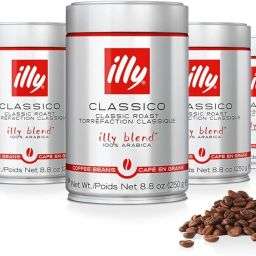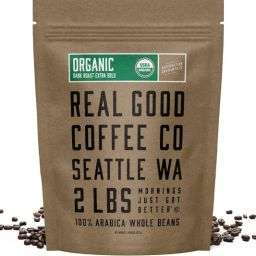
Organic Colombian coffee is renowned worldwide for its exceptional quality and distinct flavor profile. Defined by its cultivation in nutrient-rich, chemical-free soil, organic coffee from Colombia is grown without the use of synthetic pesticides or fertilizers.
This method not only enhances the health of the ecosystem but also produces beans that offer a purer taste and are safer for consumers. Colombian coffee, characterized by its mild, fruity, and floral notes, plays a pivotal role in the global coffee market, with Colombia being one of the top coffee-producing countries in the world.
Key Takeaways
- Organic Certification: Colombian coffee that is certified organic adheres to stringent cultivation practices that forbid the use of synthetic chemicals.
- Flavor Profile: Known for its smooth, mild flavor, organic Colombian coffee often features notes of fruit and flowers.
- Global Importance: Colombia is a leading coffee exporter, and its organic coffee is a significant part of the international coffee trade.
- Sustainable Practices: Organic farming in Colombia supports sustainable agriculture, promoting environmental health and biodiversity.
The History of Coffee in Colombia
The history of coffee in Colombia dates back to the early 19th century, with the country’s coffee sector evolving significantly over the years. Initially, coffee in Colombia was cultivated in small plots, with beans processed and traded locally. However, as the global demand for coffee grew, Colombia emerged as a key player in the coffee industry.
The transition to organic coffee practices in Colombia gained momentum as farmers and producers recognized the benefits of sustainable agriculture. These practices not only improved the quality of their coffee but also ensured the well-being of their land and local communities.
The History of Coffee in Colombia
Colombia’s journey with coffee began in the early 19th century, rapidly evolving to become one of the world’s leading coffee producers. Initially, Colombian coffee was cultivated in small quantities for local consumption. However, as global demand surged, Colombia expanded its coffee cultivation, embracing diverse regions that now contribute to the unique profiles of Colombian coffee.
In recent decades, there has been a significant shift towards organic coffee cultivation in Colombia. This transition was driven by a growing global awareness of environmental sustainability and health. Colombian farmers began adopting organic practices, moving away from synthetic chemicals to natural methods that preserve the ecosystem and enhance the coffee’s quality.
Today, organic Colombian coffee is celebrated for its superior taste and sustainable production, reflecting Colombia’s commitment to environmentally friendly and ethical coffee farming.
Organic Certification Processes
Organic certification in Colombia is a rigorous process that ensures coffee is grown according to strict organic farming standards. These standards prohibit the use of synthetic pesticides, fertilizers, and genetically modified organisms, focusing on maintaining ecological balance and soil health.
For Colombian coffee farms to achieve organic certification, they must undergo a detailed inspection and auditing process. This process evaluates various aspects of the farm’s operations, including the cultivation practices, handling of the coffee beans, and the environmental impact of the farming methods. Once certified, farms are subject to regular inspections to ensure ongoing compliance with organic standards.
The organic certification not only validates the purity and quality of the coffee but also enhances its market value. Consumers worldwide recognize and trust certified organic labels, knowing they are choosing a product that is beneficial for their health and the planet. As a result, organic Colombian coffee enjoys a prestigious position in the global coffee market, appealing to those who value sustainability and exceptional coffee quality.
Environmental Benefits
Organic Colombian coffee farming plays a pivotal role in promoting environmental sustainability. By eschewing synthetic chemicals, organic coffee cultivation enhances biodiversity, conserves water, and ensures soil health. These practices reduce pollution and soil degradation, contributing to a healthier ecosystem.
Moreover, organic coffee farms often implement shade-growing techniques, which support a habitat for various wildlife species, further underscoring the environmental advantages of organic coffee production in Colombia.
Health Benefits for Consumers
Consumers of organic Colombian coffee benefit from a product that is free from synthetic pesticides and fertilizers, reducing their exposure to harmful chemicals. Organic coffee is known for its high antioxidant content, which can contribute to overall health by combating free radicals.
Additionally, the natural cultivation process preserves the coffee’s intrinsic flavors and nutrients, offering a purer and richer coffee experience.
Socio-economic Benefits for Farmers
Organic coffee cultivation in Colombia provides substantial socio-economic benefits for farmers. Organic certification allows farmers to access premium markets, often leading to higher income compared to conventional coffee production.
This economic uplift can lead to improved living standards and community development. Moreover, by adopting organic practices, farmers invest in the long-term health of their land, ensuring sustainable livelihoods for future generations.
Growing Regions and Their Characteristics
Colombia boasts several key coffee-growing regions, each offering unique characteristics to the coffee produced.
- Antioquia: Antioquia’s coffee is known for its medium body and balanced taste, with hints of nuts and fruits. The region’s consistent climate and altitude contribute to the coffee’s quality and flavor profile.
- Huila: Huila produces coffee with a bright acidity and distinctive notes of chocolate and fruit. The region’s volcanic soil and ideal rainfall patterns create optimal conditions for organic coffee cultivation.
- Tolima: In Tolima, coffee often exhibits a rich, sweet flavor with citrus notes. The diverse microclimates within the region allow for a variety of coffee profiles, making Tolima’s coffee highly sought after.
- Cauca: Cauca’s coffee is recognized for its clean, sweet taste, often with a pronounced fruitiness. The region’s high altitude and fertile soils are conducive to the cultivation of exceptional organic coffee.
These regions collectively contribute to the reputation of Colombian coffee, with each area offering a unique contribution to the country’s coffee portfolio. Organic practices in these regions ensure that the coffee not only tastes good but also supports a sustainable and healthy environment.
Production and Export
The production of organic Colombian coffee is a meticulous process that emphasizes quality and sustainability. It begins with the selection of high-quality, organic-certified seeds, followed by planting in nutrient-rich, chemical-free soil. Farmers employ natural methods to manage pests and fertilize the crops, ensuring the beans are grown without synthetic inputs.
Harvesting is predominantly done by hand, allowing for selective picking of ripe cherries, which contributes to the coffee’s superior taste. Post-harvest, the beans undergo natural processing methods, often involving washing and sun-drying, which are crucial for flavor development.
When it comes to exporting, Colombia has established a robust system to maintain the integrity and traceability of its organic coffee. The beans are meticulously inspected and certified before export, ensuring they meet international organic standards. Colombia’s strategic geographic location and established trade agreements facilitate efficient coffee exportation, enabling organic Colombian coffee to reach global markets while maintaining its freshness and quality.
Brewing the Perfect Cup of Organic Colombian Coffee
Brewing organic Colombian coffee is an art that, when done correctly, can enhance the coffee’s inherent flavors and aromas. The choice of brewing method significantly impacts the final cup’s taste and character.
Grinding: Grind size matters; a finer grind is ideal for methods like espresso, while a coarser grind suits French press brewing. Consistent grind size ensures even extraction of flavors.
Water Quality and Temperature: Use fresh, filtered water to avoid off-flavors. The optimal water temperature for brewing is between 195°F to 205°F, crucial for proper extraction without over-extracting and causing bitterness.
Brewing Methods
- Pour-over: Offers controlled extraction, highlighting the coffee’s subtle flavors and aromatics. Ideal for appreciating the nuanced notes of organic Colombian coffee.
- French press: Extracts deep flavors and oils, resulting in a full-bodied cup. It’s excellent for showcasing the coffee’s richness.
- Espresso: Intense and concentrated, this method highlights the coffee’s bold characteristics and is a foundation for various coffee beverages.
Experimenting with different brewing methods and adjustments can lead to the perfect cup, allowing the unique traits of organic Colombian coffee to shine through.
FAQs
What makes Colombian coffee organic?
Organic Colombian coffee is grown without synthetic pesticides or fertilizers, using methods that preserve environmental health and promote biodiversity. It must meet stringent organic certification standards that verify its sustainable and chemical-free cultivation.
How does organic farming affect the flavor of Colombian coffee?
Organic farming enhances the natural soil quality, which contributes to the coffee’s flavor profile. Without synthetic chemicals, the beans retain their natural characteristics, often resulting in a cleaner, more pronounced taste.
Can organic Colombian coffee be traced back to its origin?
Yes, traceability is a key aspect of organic Colombian coffee. Each batch can be traced back to its farm of origin, ensuring authenticity and adherence to organic standards.
Is organic Colombian coffee more expensive than non-organic?
Typically, organic Colombian coffee is priced higher due to the more labor-intensive and sustainable farming practices. However, many consumers find the price justified by the coffee’s quality and environmental benefits.
Final Thoughts
Organic Colombian coffee stands out for its commitment to quality, sustainability, and flavor. Through meticulous cultivation, certification, and brewing practices, it offers a superior coffee experience that benefits both the consumer and the environment.
As awareness and appreciation for organic practices grow, the future of organic Colombian coffee looks promising, poised to continue its legacy as a premium, eco-conscious choice for coffee enthusiasts around the world.









